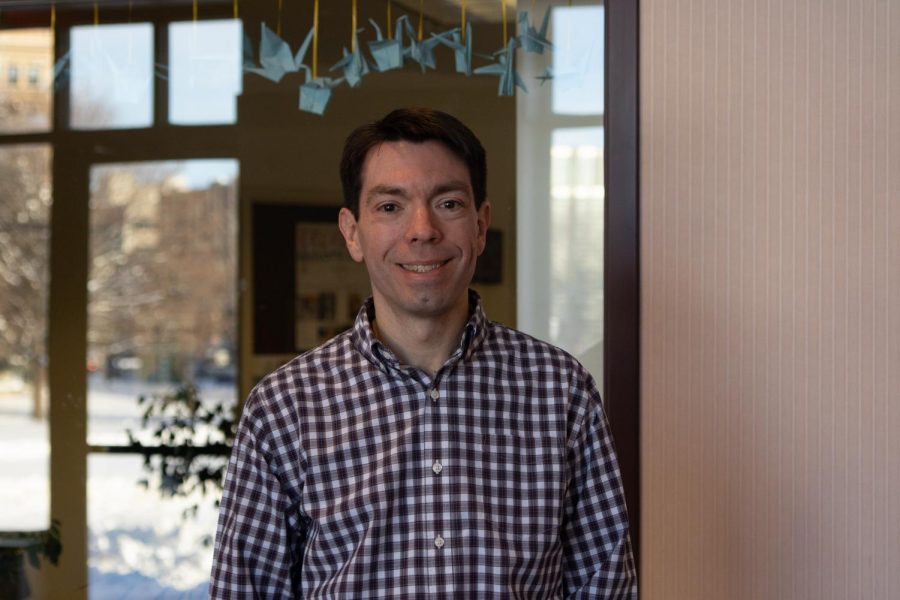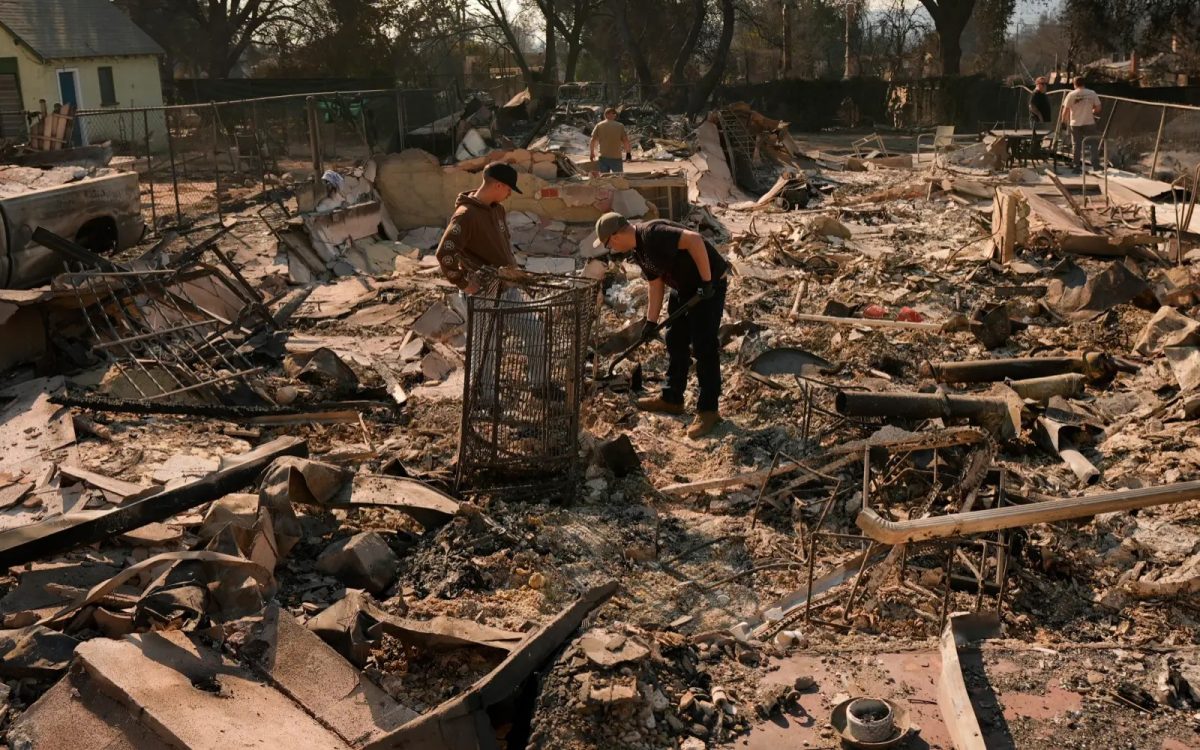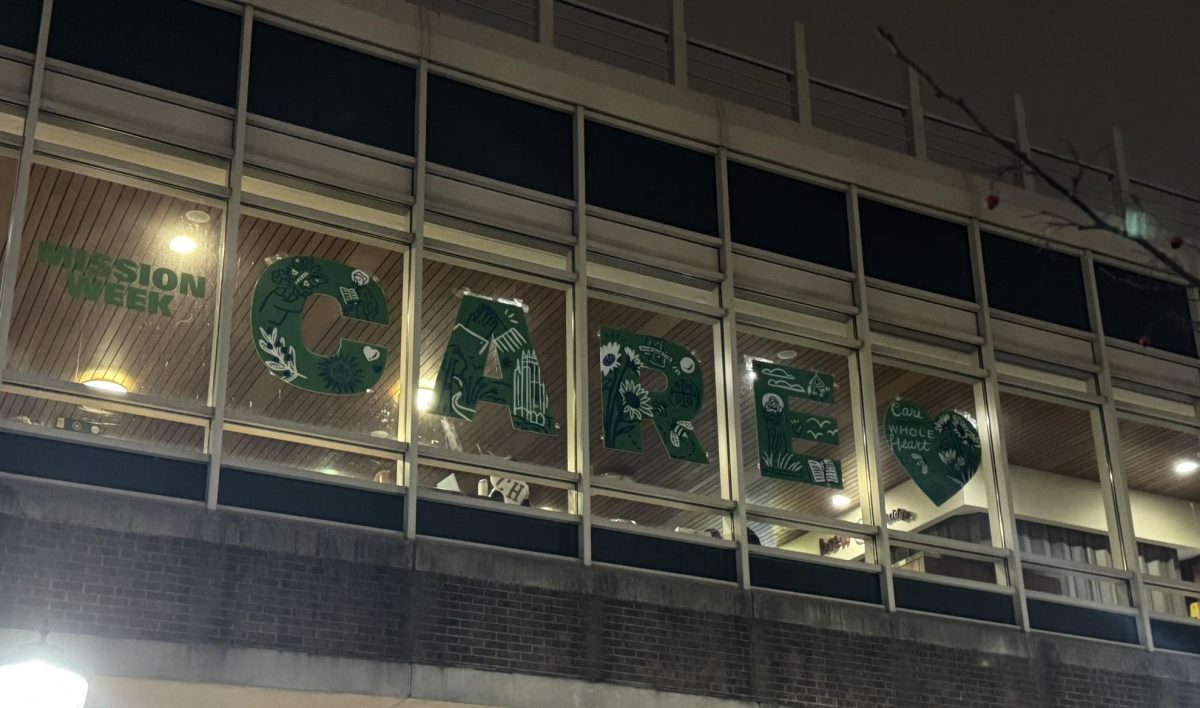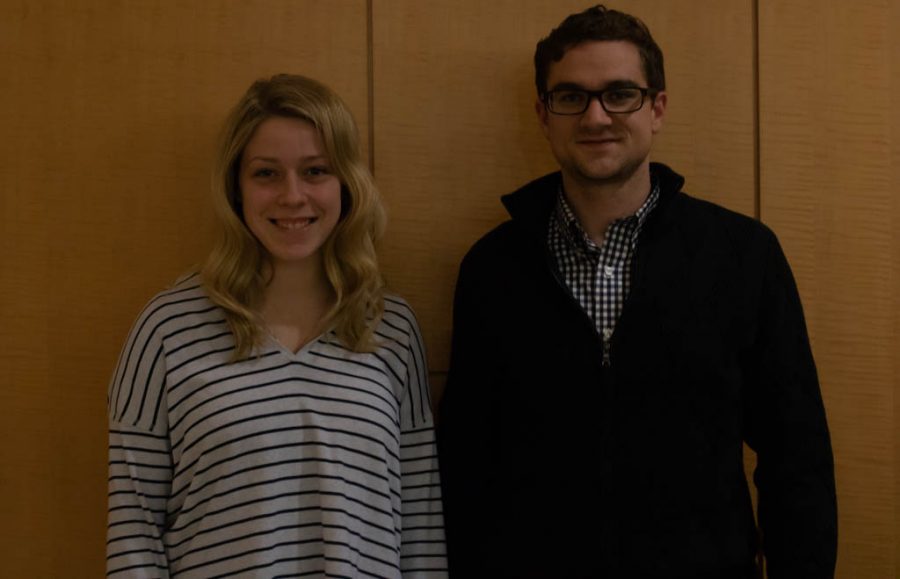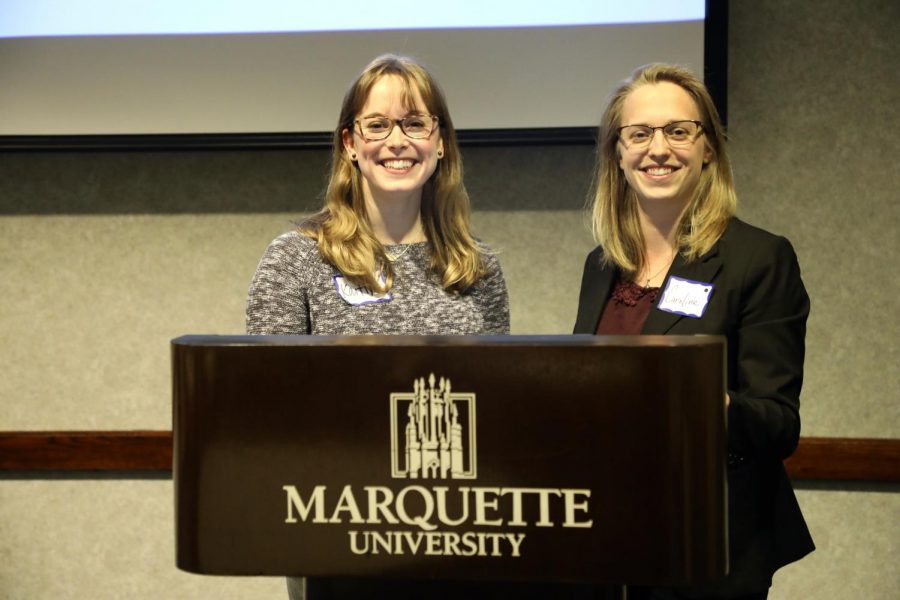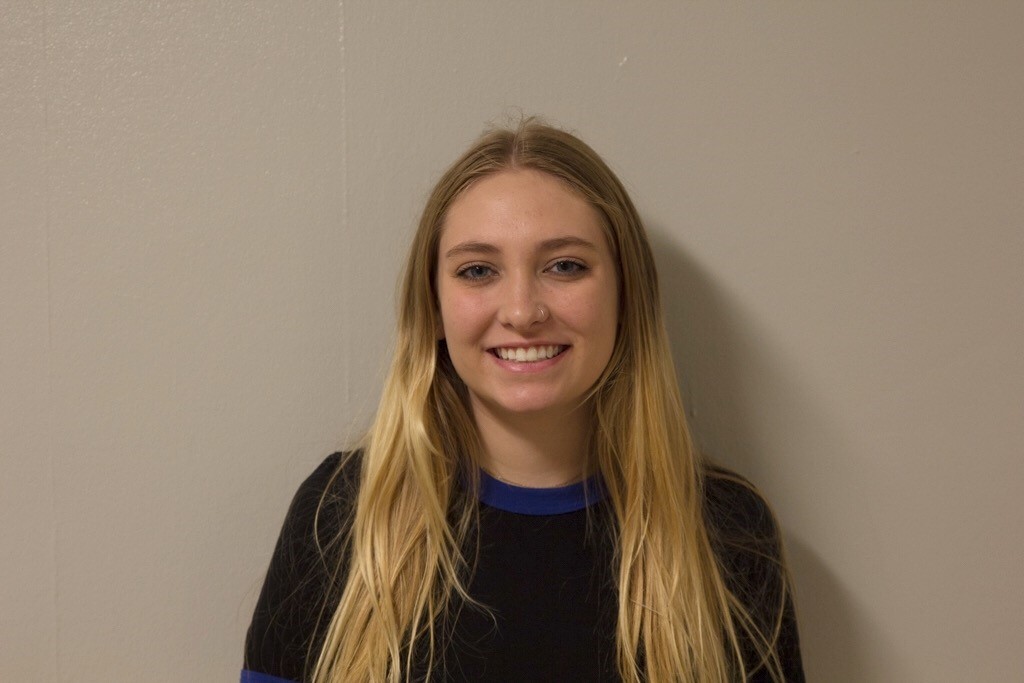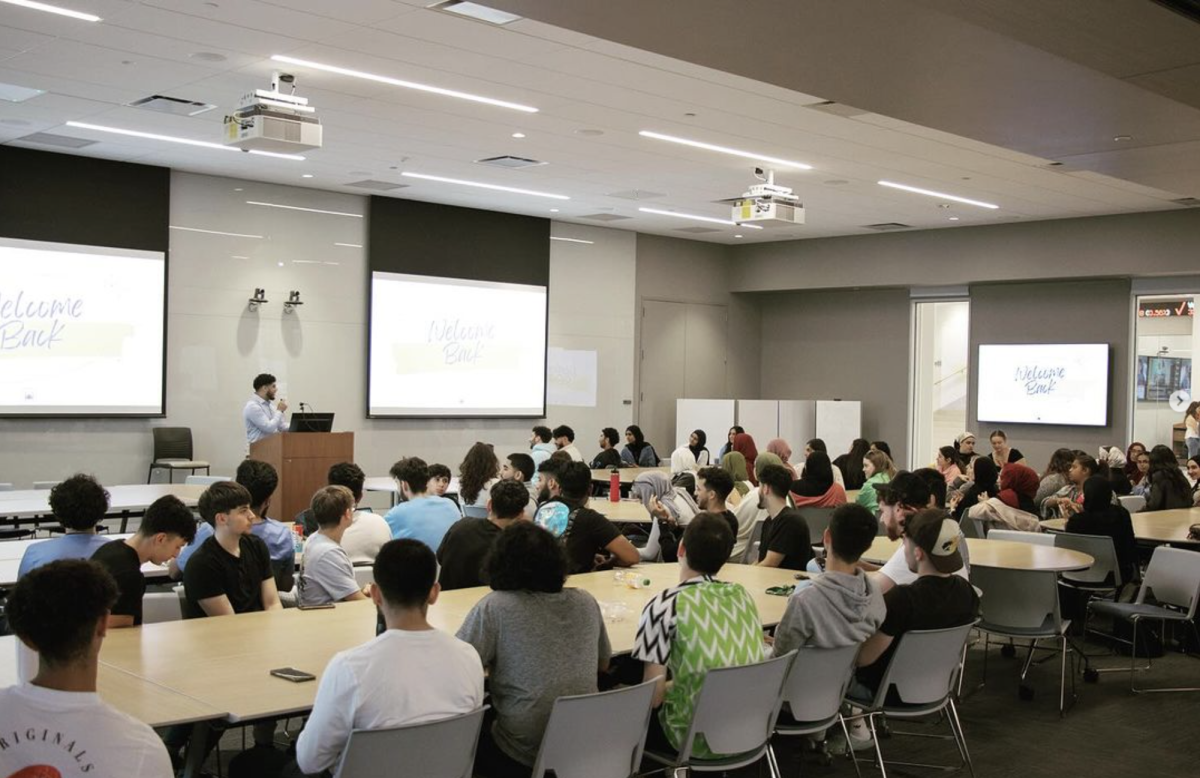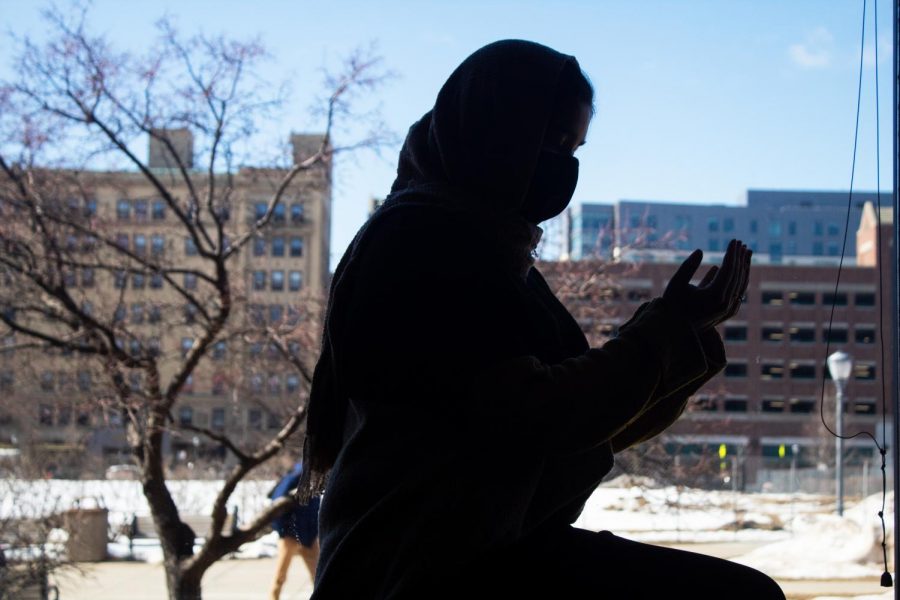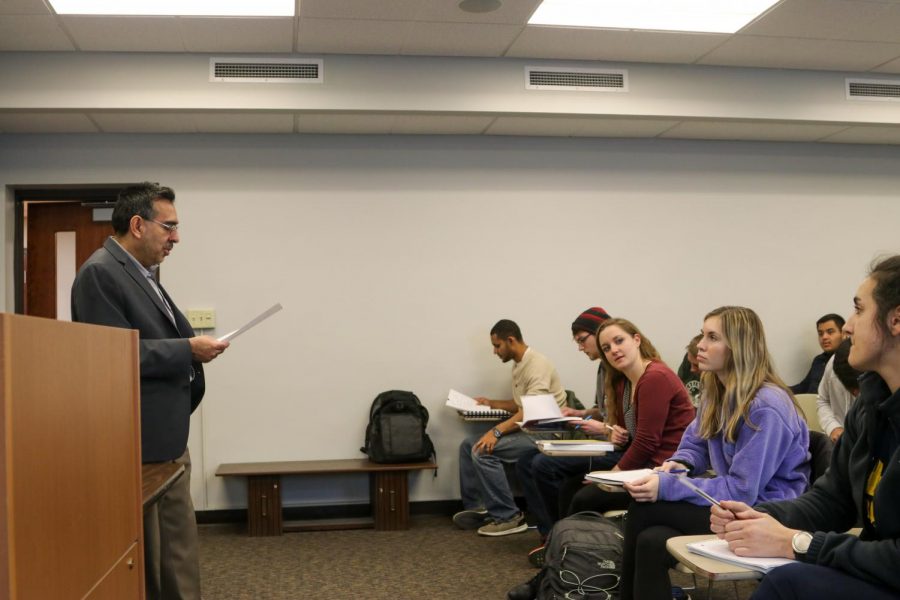
By Kelly Meyerhofer and Emily Wright
Special to the Tribune and emily.a.wright@marquette.edu
After a research process that included self-study and reflections from past and current teaching assistants, the theology department will change the mandatory Theology 1001 course, housed within the College of Arts & Sciences. It will be restructured next semester to include several professors and religious denominations.
The new sections of Theology 1001 will be team-taught and are intended to introduce students to multiple perspectives on theological reflection. Each teaching team will include Christians from various churches, one or more scholars from other religious traditions, laymen, women and a Jesuit.
This interdisciplinary approach is “one of several options that the theology department will be introducing to improve the pedagogical effectiveness of THEO 1001,” said Robert Masson, one of the theology professors who will be team-teaching the course next semester. “The team-taught sections will provide an opportunity to expose a greater number of students to the religious diversity of our faculty.”
Masson said the department decided to make changes to the class prior to a forum held in September about LGBT issues and experiences in Theology 1001.
“Besides the usual assessments which we do every year of all our courses, we did a self-study with consultants from the Wabash Center and brought back (teaching assistants) from the last 10 years to reflect on their experiences,” Masson said. “We had determined to make changes before the LGBT issues in Theology 1001 arose this year.”
The current introductory theology course is taught by individual professors and covers mostly Christian and Roman Catholic texts. There is only one theology elective that handles multiple world religions. Jewish Student Union President Ryan Perel, a sophomore in the College of Business Administration, said he hoped this would change. Jasleen Bhasin, a junior in the College of Business Administration, agreed.
“We should have more than one world religion class,” Bhasin said. “It would help people understand other religions besides Catholicism.”
The new Theology 1001 class will be open to all students and meet as a large group on Wednesdays for a traditional lecture class period. It will also meet in smaller groups on Mondays and Fridays, similar to a discussion section.
“All professors should include Judaism and Islam to achieve one of the outcomes of this core course, which is to describe theologically the basic content of the Catholic faith in relation to other Christian and religious traditions, as well as other world views,” theology professor Jame Schaefer said.
The change in introductory theology classes shows a growing concern for religious diversity at Marquette, an issue that has been controversial and central to the university over the past several years.
An ‘interfaith reality’
Two Christians, a Muslim, a Sikh and an atheist meet to discuss the purpose of life. No, this is not the beginning of a joke – it’s the beginning of a Spirituality Education Awareness and Sikhism meeting and a discussion about religion, philosophy and increasing diversity on campus.
Bhasin, a Sikh, started SEAS last fall to provide an outlet for students and faculty to learn about other religions. Each meeting focuses on the discussion of a single question, like “What is the purpose of life?”
“Our purpose is not to convert people,” Bhasin said. “It’s about learning other people’s beliefs and becoming more religiously aware.”
Bhasin said she created SEAS because she felt there were not enough student groups educating the student body about religious diversity.
“We need to have events to relate our differences together,” Bhasin said. “Even though we’re different, we’re still the same. We’re still humans.”
Marquette’s student body is mostly Christian. According to the yearly Freshman Census, more than 89 percent of the class of 2016 identified as either Catholic or another variety of Christianity. This means 10 percent of Marquette identifies as religious minority students, with 2 percent of another world religion, 6 percent non-religious and 2 percent unknown.
The vague term “another world religion” bothered Steve Blaha, the university’s director of ecumenical and interfaith outreach, who broke down these demographics further. He estimated that 1 percent of Marquette’s population is Muslim and that less than 1 percent is Jewish or Sikh.
Alexandra Maglio, a freshman in the College of Health Sciences, has attended Catholic schools her entire life and said she wished Marquette had more religious diversity.
“There are people of other religions here, like my own roommate, but she’s still Christian,” Maglio said. “I’d rather have it be a little more diverse and to hear about extremely different beliefs.”
Though Maglio and other students want a more diverse campus, increased diversity comes with new issues to resolve.
The Muslim Student Association meets on the fourth floor in the Alumni Memorial Union. Blaha said this makeshift prayer space, which is used as an office during the day, is not adequate for communal prayer space for an organization of its size. MSA requested help from Marquette Student Government last year to advocate for its own prayer space. MUSG responded with a bill supporting the group, but no such space has been created.
“For something like this, all we can do is ask the administrators to look into making these changes,” said MUSG Student Life Committee Chair Heinz Schelhammer, a senior in the College of Business Administration, in an email. “It is up to the school to make the needed changes.”
Schelhammer said making room for MSA would mean infringing upon another group’s space.
“They need a space dedicated solely for them, solely for their faith,” Blaha said.
An additional problem Marquette’s Muslims face is the lack of a Muslim chaplain in Campus Ministry. All the Campus Ministry staff profess some form of Christianity.
“(Muslim students) need someone who is Muslim themselves to navigate life and faith questions,” Blaha said.
Blaha said he does not see a Muslim chaplain joining Campus Ministry’s office anytime soon because of a lack of funding.
Another religious minority struggling to find its place on campus is the Jewish Student Union. Marquette’s housing contract requires freshmen and sophomores to live on campus, which restricts Orthodox Jewish students from practicing the custom of living in a communal house.
Marquette also does not explicitly offer kosher-certified food. (None of the current JSU members practice kosher, so this is not a problem now.)
“It’s an interfaith reality,” Blaha said. “We try to make other religions work at a Catholic institution.”
Planning and partnership
When Blaha took his position in 2007, he immediately saw the need for an interfaith program and began to research other Jesuit, Catholic and private universities for similar models. It was not until this year that Blaha was able to put his plan into action.
His work resulted in the creation of the Affiliated Ministries program. Affiliated Ministries partners with Marquette and Milwaukee religious organizations such as Cru, Hillel Milwaukee, InterVarsity Christian Fellowship, Lutheran Campus Ministry and Orthodox Christian Fellowship.
Blaha meets with the president of all student religious organizations once a month to plan interfaith events in partnership with Milwaukee religious institutions.
For example, after the shooting at the Sikh temple in Oak Creek, Blaha and the student leaders held a vigil for the victims. Another event, Fast-A-Thon 2013, was an opportunity for students to fast and then break the fast together over dinner with a discussion on fasting and its meaning within a variety of religions.
Blaha said students usually feel accepted, adding that students who attend a faith-based university usually have a respect for religious traditions and an openness to all faiths.
Liana Hariri, a sophomore in the College of Health Sciences and member of the Arab Student Association and MSA, said even though she is part of an underrepresented religion, she still feels like part of the faith community at Marquette.
“With all of the stress and worries and problems that college brings, I need my God,” Hariri said.
Claire Hackett, a junior in the College of Arts & Sciences and an atheist, said her theology classes have been the hardest classes she’s taken because she comes from a non-religious background. She said she wished there were more classes with religious diversity.
“The best way to learn about the world is by looking at other (religions),” Hackett said.
Hackett said friends who know she’s an atheist are surprised she attends Marquette. She said religion is only one important part of the university.
“You go to a school for its merits, not its theology,” she said.
The changes being made to the introductory theology class next semester are an attempt to address these issues and make the course relevant for all students.
“It’s not about convincing other people of what I’m teaching,” theology professor Irfan Omar said. “It’s about sharing with them. It’s up to students what they want to take away from it. It’s certainly not my goal in teaching to preach.”
Born in India and raised Muslim, Omar said he chose to work at Marquette because he believes Jesuit institutions are more accepting of conversations about faith.
Enaya Othman, a visiting assistant professor of Arabic language and literature, said she thinks Marquette is a welcoming community.
“(Religious diversity) is a religious, social and educational statement by the university,” Othman said. “The people who represent different religious groups feel comfortable in the Marquette community.”
Othman said she believes the Middle East and North Africa Studies program, which is being developed as a future major, will help support the Arabic program and will help students learn about the cultures where Islam is practiced. She said the Arabic language minor already helps create this exposure because of the intertwining of religion and language.
Michael Vater, an associate professor of philosophy and a practicing Buddhist who teaches meditation courses in the Honors Program, offers a weekly meditation session for the Marquette community. He said there is a conscious effort to provide opportunities for students to explore other faiths and deepen their own.
“There are a lot of similarities (between faiths),” he said.
‘God is God’
At another SEAS meeting, a small group of students from diverse backgrounds – a Baptist, two Muslims, a Sikh, and a Catholic – congregate for this interfaith meeting.
The topic is how each religion handles stress. As president of SEAS, Bhasin presents a PowerPoint with scriptures from each religion. Upon completion of her presentation, she concludes that her research indicates all religions handle stress in the same way: by turning to God.
“God is God, no matter what religion,” Hariri says. “You need that in college to manage the stress and problems and worries.”
Claudia Brokish contributed reporting.


